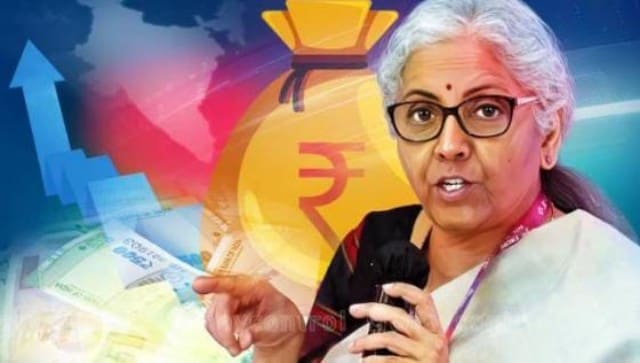Rural fintech industry seeks GST, TDS exemption for specific financial services from BCs

Representative image. Money control
One of the great success stories from the pandemic was the ability for the digital payments space to grow and scale quickly. The government helped in this process with incentives and tax rebates.
To ensure that the digital payments ecosystem continues to grow and scale, the Finance Minister may consider waiving Goods and Services Tax (GST) and Withholding Tax (TDS) for specific financial services provided by business correspondents in rural areas.
Tax exemptions, subsidies to improve BC’s economic viability
Business correspondents are bank representatives who help villagers open bank accounts and carry out banking facilities. They work on a commission basis and usually work with a mobile phone to carry out banking transactions. The agents play an important role in the rural credit ecosystem and have been the foot soldiers in the government’s digital push. An exemption will ensure that the benefits of the digital payment ecosystem reach more people and bring them into the fold of the formal financial system.
Furthermore, we feel that a tax exemption would significantly reduce costs and help scale the wider sector. The budget should provide economic benefits via additional tax exemptions and subsidies to improve the economic viability of BCs.
Reduce 18% VAT
We believe the government should take steps in the budget to reduce the 18 per cent GST levied on customer charges on small value money transfers. We believe key features like domestic remittances should be bought out of GST ambit or exempted since it is used by an underserved segment of the population, especially the migrant workforce.
Initiatives like ONDC (Open Network for Digital Commerce) are democratizing e-commerce in India and shaping the future of global e-commerce. To encourage e-commerce in rural India, the government may offer GST and TDS exemptions to sellers and consumers focusing on rural India.
In terms of the wider fintech space, we feel that a relaxation of the tax regime in the Budget will help the sector immensely. At this point, corporate tax rates and a massive GST rate of 18 percent apply to domestic firms, which is high for a fast-moving sector that is scaling quickly.
3-year tax holiday to help with growth
Several estimates have said that the transaction value of fintech firms will touch $138 billion by the end of this calendar year. In terms of new tax policy, a relaxation in the form of a tax holiday for at least three years or a suspension of payments for three to five years will help the sector keep the growth momentum going.
In the rural sector, it is important to formulate specific guidelines that offer start-ups concessional tax rates, if they work towards financial inclusion of MSMEs and the rural sector.
In terms of GST, the sector can be exempted or taxed at a lower rate to support growth and scale.
Sops for startups with a turnover of less than Rs 10 cr
Concessions can be made available to startups with an annual turnover of less than Rs 10 crores. This will reduce compliance costs and help companies scale faster, thereby helping the rural economy.
Through digitization, fintech can grow and expand across the country, including rural areas. The sector expects more help from the government in terms of the drive for expansion in rural areas and MSMEs. This is possible with better bank partnerships and offers equal opportunities for online and offline lenders. We believe partnerships and collaboration between online and offline lenders will give the sector more length and breadth to grow.
Ensure a level playing field between fintechs, NBFCs
RBI should have comprehensive and all encompassing regulations to bring more clarity to fintech companies. We believe better regulation will ensure a level playing field between fintechs and NBFCs. It will enable businesses to lend directly to borrowers and be responsible for them.
The budget may also take steps to encourage partnerships between banks and gold loan firms to help make gold loans available to underserved communities in rural India. We feel that steps or policy decisions to ensure adequate liquidity in the organized gold loan segment will help the broader sector.
Offer incentives to Rupay PPI cards
During the pandemic, digital payments made it easier for businesses, including small merchants, to operate. We believe that BHIM Aadhaar Pay is the right marketplace for the small merchant. The adoption of BHIM Aadhaar Pay is key for the equitable growth of digital payments in rural India. We hope the government provides incentives for Rupay PPI cards/PPI programs and low value BHIM-UPI transactions.
We also hope that budgetary support for the Unified Payments Interface (UPI) will be extended to non-banking institutions, such as prepaid payment instrument (PPI) issuers. We hope the government’s plans to establish more digital banking units continue. As mentioned earlier, a collaboration between existing fintech players and bank correspondents who are bank agnostic will help to extend necessary universal banking services to the last mile and enable financial inclusion.
We have seen significant growth in bank account transactions in rural areas enabled by business correspondents leveraging the Aadhaar stack. We hope the government takes steps in the budget to leverage the Aadhaar stack for more use cases.
(The writer is the founder, Spice Money—a rural fintech. He tweets @IamDilipModi @SpiceMoneyIndia. Views expressed are personal)
Read all Latest news, Popular news, Cricket news, Bollywood News,
India news and Entertainment news here. Follow us on Facebook, Twitter and Instagram.

